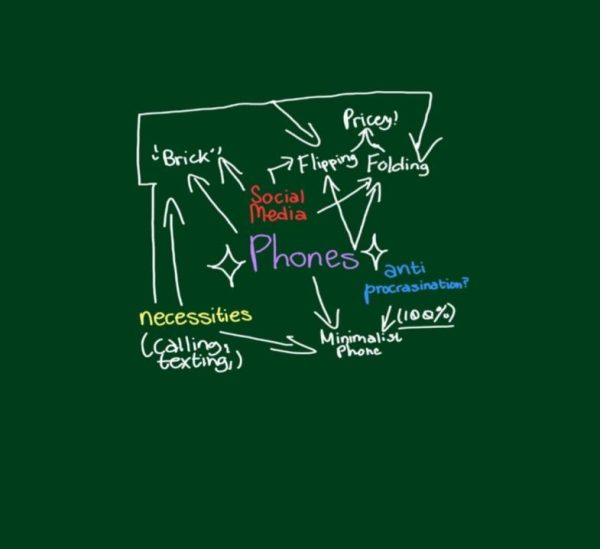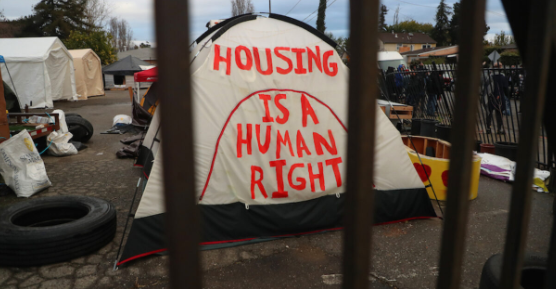A Blockade to Women’s Healthcare: Abortion
With the recent political decisions of Texas and a few other states, the well known case of Roe v. Wade has seen more debate and discussion than usual. To take any legal action concerning abortion, Roe v. Wade must be consulted and taken into consideration. In the case of Texas and other states wanting to strictly control abortion, whatever they decide to enact must first overturn the decision of Roe v. Wade and gain Supreme Court approval.
This means, even though Roe v. Wade has not been nationally overturned, there are multiple loopholes that can be used to allow states to independently overturn the case and violate bodily autonomy, which endangers all those with a uterus. Texas has already successfully done so with the Heartbeat Act, which came into effect on September 1 of 2021, setting a dangerous precedent for other states also seeking to firmly restrict abortions.
Roe v. Wade was a court case that occured in the 1970s that challenged the old time abortion ban that had been enacted since the 1880s. It began after Norma McCorvey, wanted to have a safe and legal abortion after her third unwanted pregnancy. Jane Roe was the alias of the plaintiff, Norma McCorvey, who hid her name in protection of her identity. McCorvey challenged the constitutionality of the criminalizing abortion law.
On December 13, 1971 the case was argued and determined that it required a reargument trial. The reargument trial was held October 11, 1792 and the Supreme Court’s decision was announced January 22, 1973. In a 7-2 decision the Court decided to overrule the criminalizing abortion ban. According to the case records the Supreme Court stated, “[The] fundamental right of single women and married persons to choose whether to have children is protected by the Ninth Amendment, through the Fourteenth Amendment.” Roe v. Wade is an important landmark decision because it was the first case stating women could have safe and legal abortions, and protecting their bodily autonomy.
“I think states overruling it, [Roe v. Wade], is very hypocritical because they’re using their legislation to control women’s bodies. But they discount the previous legislation that does not allow them to do that. It’s not right,” said junior Elizabeth Cisneros-Oakes.
Abortion has been a controversial topic even after the ruling of Roe v. Wade which legalized it. Throughout the years, more people have began to oppose abortion by being pro-life. They believe that the embryo should be sustained throughout its growth no matter the circumstances because it is a potential life. On the opposition is pro-choice. They believe it is a women’s right to choose what they do with their body. Although everyone has their differing opinions, legally it is a women’s choice to do what they want with their body, without government intervention.
“I am completely pro-choice. I think that supporting women means supporting their right to choose. I believe everyone with a uterus is affected by the ban because oppressing some women is oppressing all women when it’s based off of your genitals. So I think regardless of specific individuals, I think everyone is affected,” said freshman Bianca Norton.
The Heartbeat Bill that Texas has enacted seeks to ban abortions past 6 weeks, approximately when a heartbeat is detectable in the embryo, and the clump of cells is the size of a bean. Six weeks is early enough where most people don’t even know they’re pregnant. The guidelines are incredibly strict, where rape and incest are not counted as exceptions, and the health exceptions only apply if the pregnancy could endanger the mother’s life or cause irreversible damage to any major bodily functions. Unfortunately, this incredibly narrow list of exceptions doesn’t apply to the majority of pregnant women, and those who can’t or won’t have the child are left with no choice but to either abort it through dangerous means, or put it up for adoption. States also claim miscarriages as so called “backalley abortions”, and prosecute on that basis. This has already occurred in one instance, where a woman in Oklahoma has been convicted four years of manslaughter on top of her already traumatizing miscarriage.
Obviously, this leads to more problems concerning the mother’s health, and the growing amount of children in the system whose parents couldn’t take care of them, but also couldn’t abort them. These children are often left without any support system, and suffer the consequences of being born in a society that only cares to force them to be born, not what happens after. Instead of solving the already prevalent problem with putting kids into the system, Texas is enacting a bill to strictly control and punish those with a uterus.
The lack of sex education and providing of contraceptives doesn’t aid in this issue, only contributing to teen pregnancy and babies born to women who are too young and immature to properly take care of them. The Heartbeat Bill targets women; where statistically a large percentage of those receiving abortion care in Texas are impoverished and people of color, meaning those most impacted are saidp eople of color and people in poverty. The majority of those who voted in favor of the bill from the House of Representatives and Senate were fairly well off white men.
The bill also states anyone who assisted in an abortion will be fined $10,000. Anyone can accuse a random person for assisting in an abortion and have them sued. In some cases the punishments are more cruel. Death penalties have been given to women that have attempted to have abortions and women who suffer from miscarriages have been sentenced to prision.
Because of the Heartbeat Bill passing, people that are pro-choice are angered that Texas is limiting women’s choices. They disagree with the unfair bill limiting all women’s rights in Texas, not just access to abortion. More petitions and protests have happened, such as the Womens’ March on October 2, 2021, in hopes of overturning the criminalizing abortion ban and preventing stricter abortion bans from spreading around to other states.
“I support protests against the abortion ban because no one should have the right to tell another person what to do with their body,” said sophomore Frida Olguin.
Not only are there people rebelling against the abortion ban, organizations have also began taking action to overturn the bill. The Satanic Temple is declaring abortion as a religious practice to claim freedom of religion to ensure that their members have access to abortion. With the Satanic Temple being an athiest organization, they are using the Religious Freedom Restoration Act to ensure access to safe abortions. The Religious Freedom Act states the government cannot interfere with anyone’s religion. The Satanic Temple supports access to safe and effective abortion care and is protecting womens’ rights to their own bodies through religion.
Regardless of personal belief, or whether you would personally get an abortion, the Texas Heartbeat Bill is a violation of human rights, bodily autonomy, and a dangerous precedent to set of overturning Roe v Wade. It blockades a woman’s right to safe and legal healthcare, encouraging dangerous and desperate alternatives. Not wanting to get an abortion yourself or thinking it’s a bad decision does not and should not equal supporting Texas’ Heartbeat Bill.











